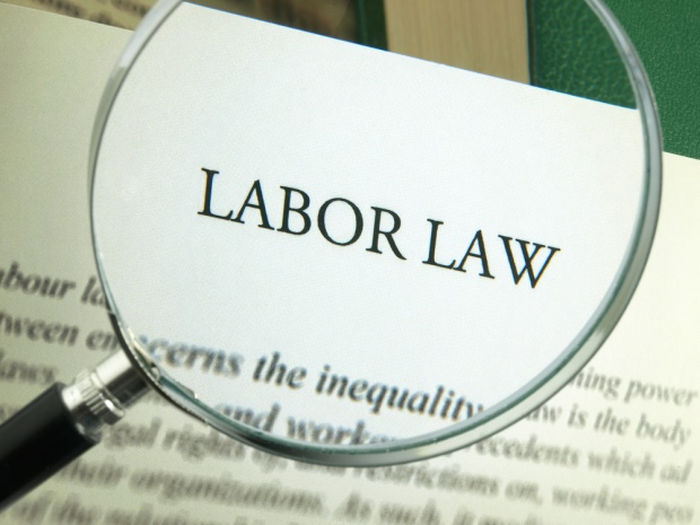PEO vs Payroll Service Provider: Which Is Right For Your Business?

As your business expands, so does the time and effort it takes to manage its growing HR-related tasks. Outsourcing your payroll activities seems like a good place to start reigning in your HR burden. Payroll service providers can take over activities such as processing payroll, making tax deposits, filing tax forms, and even processing garnishments.
But your business will still be left with all the other responsibilities that belong in an HR department. Issues related to labor law compliance, company policies, workplace safety, workers’ compensation, and the Affordable Care Act will absorb resources that may be better spent on core business activities. Partnering with a PEO, and specifically a CPEO certified by the IRS, will relieve your business of these tasks while also providing benefits a payroll service provider can not.
Both PEO and Payroll Service Providers Administer These Payroll Activities
The tasks surrounding payroll are so numerous it’s no wonder business owners see it as the first candidate for outsourcing. From the moment the first newly hired employee clocks in, business owners must consider issues such as payroll calculations, employee tax payments, and overtime pay. Throw in garnishments and shift differentials, and business owners find themselves flooded with FLSA regulations and a catalogue of tax compliance rules. And unlike many other employee-related issues, payroll rears its ugly head every week.
Both a payroll service provider and a PEO can handle all of your payroll functions. You can outsource tasks such as benefits deductions and new-hire reporting. Both outsourcing solutions can handle direct deposits and garnishments. But there may be some important gaps in the services you receive from a payroll service provider.
For example, if you count on your payroll service provider to send employee tax withholdings to the IRS, the federal government will hold you liable if your provider fails to make the payments. If you use a CPEO, you won’t need to worry about the IRS knocking on your door. A CPEO is a PEO certified by the IRS. Because it is certified, after you pay the CPEO, the CPEO—not you—will be liable for filing employee tax withholdings properly and on time.
Correctly classifying employees is another payroll issue outside the purview of a payroll service provider. Your employees’ pay and withholdings will be determined by whether they are exempt, non-exempt, or, as in the case of a freelancer, not an employee at all. And while your management and HR team decide an employee’s status, they must do so within the strict definitions set forth by federal and state governments. These regulations are constantly changing and your teams must devote resources to applying them correctly.
A PEO Can Do So Much More Than Payroll
Employee classification is just one example of the compliance issues businesses face under the Fair Labor Standards Act (FLSA). And these regulations change frequently. In 2020, the Department of Labor (DOL) made changes to the FLSA that potentially changed your employees’ classification. On May 6th of this year, the DOL made changes that could affect people you’ve classified as independent contractors.
While payroll demands time and resources, it’s compliance issues that carry the greatest HR-related risks to your business. As a business owner, you face serious penalties if you aren’t keeping accurate records or protecting your employees’ information. If you’re among the 10 percent of small businesses facing noncompliance fines, you could pay $30,000 or more. Remaining compliant is costly, too, in the form of attorney fees or time spent.
A payroll service provider won’t help you stay up to date on these and other regulation changes unrelated to payroll. Small businesses spend about $12,000 a year in their efforts to understand and comply with complex regulations. A PEO will help you navigate the reams of federal laws governing your relationship with your employees. You’ll be confident that you’re following the law while also freeing resources to focus on core activities related to business development.
A PEO Provides Benefits a Payroll Service Provider Can’t
Healthcare costs rose 54 percent in nearly ten years following passage of the Affordable Care Act. In 2019, the average cost of employer-provided healthcare for a family was $20,576. High premiums isn’t the only price businesses pay for skyrocketing healthcare. In a competitive labor market, small and medium-sized businesses can lose talent due to high deductibles and high premiums for employees.
Partnering with a PEO may help you provide better benefits to your employees at a lower cost. This is because your company will benefit from the PEO’s size when shopping for benefits. Better benefits and an improved employee experience are why businesses that use PEOs have 10-14 percent lower employee turnover.
Perhaps you thought about outsourcing your payroll because you know just a couple of payroll errors could increase your employee turnover. While a payroll service provider could help you eliminate the risk of payroll errors, a PEO can go further by helping you develop a comprehensive plan to increase employee retention. From a better onboarding experience to timely resolution of all HR-related issues, a PEO can help you make your employees happier.
PEO Business Model Makes These Benefits Possible
Partnering with a PEO allows you to share the responsibility of having employees. Through a co-employment model you maintain the part of having employees you want to keep, managing and motivating. The PEO assumes responsibilities related to compliance issues, taxes filing, reducing your liabilities and risk while providing comprehensive benefits.
There are several things the co-employment arrangement with a PEO won’t do. It won’t affect the control you have over your business. You still have complete control over your hiring decisions. And a PEO won’t change your day-to-day operations. You maintain full managerial oversight of your employees and their responsibilities. You can also have the ability to cancel the contract with the PEO if you want.
A payroll service provider, however, doesn’t require a co-employment contract. You can simply hand off your payroll’s administration to the provider. In doing so, you can reduce the time spent on payroll processing while maintaining control over the rest of your HR-related activities.
Choosing a PEO or Payroll Service Provider for Your Business
There are significant differences between a payroll service provider and a PEO. A payroll service provider is a simple, effective solution for a specific HR need. If you’re certain your business will benefit most by outsourcing your payroll, then the simplicity of a payroll service provider may be your best choice.
On the other hand, a PEO can offer a comprehensive HR solution. You’ll no longer need to spend resources navigating the ever-changing landscape of employment laws and regulations. And you’ll be more confident than ever that your business is complying with employment rules. Your employees could have access to better benefits as well.
Perhaps you’re somewhere in between. You know that right now you need payroll support. But you also know you want to keep your options open for a future time when you’re ready to partner with HR experts so that you can redirect your resources on core business activities. In that case, consider a PEO that will tailor services and adjust as your needs change.
Do you have more questions? Give us a call today.


